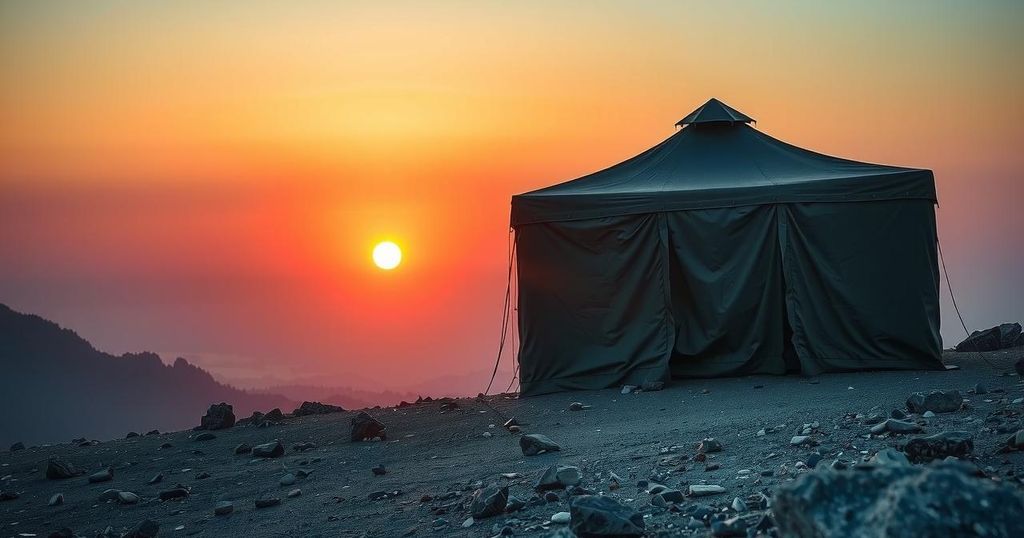Rwanda’s Kagame Expresses Uncertainty Over Troop Presence in DRC Conflict

Rwandan President Paul Kagame stated he is unsure if Rwandan troops are present in the eastern Democratic Republic of Congo, where escalating violence driven by the M23 armed group has resulted in significant casualties. While international observers suggest Rwanda is supporting M23, Kagame insisted on Rwanda’s right to defend itself against threats, particularly from the FDLR. He characterized the DRC conflict as a vital issue for Rwanda’s national security and demonstrated a readiness to respond accordingly.
Rwandan President Paul Kagame, in an interview with CNN, stated that he is uncertain about the presence of Rwandan troops in the eastern Democratic Republic of Congo (DRC). This region has been embroiled in conflict, with fighting between the M23 armed group and Congolese forces resulting in over 700 fatalities and countless injuries recently. The international community largely believes Rwanda is supporting the M23 rebels, who reportedly seized the city of Goma.
United Nations experts estimate that between 3,000 and 4,000 Rwandan soldiers are overseeing and aiding M23 fighters in the area, suggesting Rwandan forces outnumber those of the rebel group. Kagame, however, expressed his lack of knowledge about troop movements, despite being the commander-in-chief of the Rwandan Defence Force. He stated, “I don’t know,” yet acknowledged the significance of the conflict in the DRC to Rwanda’s national security.
During the discussion, comparisons were drawn between Kagame and Russian President Vladimir Putin, particularly regarding support for separatist forces. Kagame remarked on the inevitability of such comparisons, asserting, “There will be so many stories.” He emphasized that Rwanda must take necessary actions to ensure its survival in the face of perceived threats.
Kagame described the Democratic Forces for the Liberation of Rwanda (FDLR) as an “existential threat” to his country, claiming they are integrated into the Congolese military and insinuating that other regional governments support them. He reiterated Rwanda’s commitment to self-defense, stating, “Nobody, including the United Nations or the international community, is going to do it for us.”
Kagame maintained a defiant stance when questioned about troop deployments, reiterating that Rwanda would undertake necessary measures for its protection. He advised to interpret his comments as one wishes, emphasizing the paramount importance of national security. The interview reflected Kagame’s determination to navigate the complexities of regional security dynamics.
Rwanda’s involvement in the eastern DRC is a contentious issue, reflective of a long history of conflict in the region. The M23 group, composed mainly of ethnic Tutsis, has been accused of receiving backing from Rwanda amid ongoing violence in the DRC. The DRC government has consistently accused Rwanda of supporting these rebels, fueling instability and humanitarian crises. This dynamic highlights the intricate relationships between neighboring countries, especially regarding cross-border armed groups and national security concerns.
In summary, President Paul Kagame’s remarks raise critical questions regarding Rwanda’s role in the ongoing conflict in the DRC. While he professed ignorance about troop deployments, he emphasized Rwanda’s readiness to act for its national security. The tension between the two nations amid historical grievances continues to affect regional stability, underscoring the need for ongoing dialogue and resolution efforts. Kagame’s comments reflect both defiance and a commitment to protect Rwanda’s interests amid complex geopolitical challenges.
Original Source: www.cnn.com







